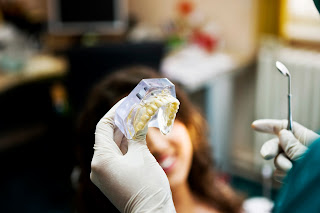What is the Link Between Plaque and Cancer?
Cancer is undoubtedly
one of the most dreaded diseases. And while some forms can be managed using
natural approaches or chemotherapy, a large number of patients with cancer
often succumb to
the disease. But can better oral hygiene really reduce your
risk for cancer?
 Dozens of studies over
the decades have consistently found that dental plaque does not cause cancer,
but it harbors and encourages agents that do. This means that self-care, which
includes daily brushing and flossing, can help to prevent more than just dental
caries and gum disease. Combining these with good diet, proper lifestyle
changes, and regular dental visits and teeth cleanings can be a great way to
prevent cancer-causing bacteria from forming and incubating in your mouth.
Dozens of studies over
the decades have consistently found that dental plaque does not cause cancer,
but it harbors and encourages agents that do. This means that self-care, which
includes daily brushing and flossing, can help to prevent more than just dental
caries and gum disease. Combining these with good diet, proper lifestyle
changes, and regular dental visits and teeth cleanings can be a great way to
prevent cancer-causing bacteria from forming and incubating in your mouth.
Link Between Plaque and Cancer - Scientific Studies
Many studies have
found that poor oral health translates to poor general health. While the tooth
exterior may seem like a sturdy shell that is impenetrable, allowing a large
amount of plaque to settle on your teeth can calcify and harden to form tartar.
This tartar can develop into a more serious problem called gum disease, which
may lead to tooth loss or systemic health problems by allowing bacteria to get
into your blood stream.
In one particular
study, researchers tracked the health of nearly 1,400 randomly selected healthy
adults between the age of 30 and 50 years from Stockholm, Sweden for 24 years
(1985 to 2009). They were interviewed about things in their lifestyle that may
increase cancer risk, like smoking and wealth, and their oral hygiene assessed,
in terms of plaque, tartar, tooth loss, and gum disease. While none of them has
overt periodontal disease, the participants had considerable levels of plaque
on the tooth surface.
At the end of the
research, 58 of the participants had died of cancer – 35.6 percent of whom were
women. The average age of mortality was 60 years for the men and 61 for the
women, yet they would be expected to live an additional 8.5 years and 13 years
longer, respectively.
Deaths among women
were largely due to breast cancer, but men were attacked by different types of
cancer, including pancreatic and oral cancers. According to the study, the
dental plaque index for the deceased was higher than for survivors, implying
that the gum area of their teeth had considerable amounts of plaque. The index
was much lower for the survivors, suggesting that only a small area of their
gum was covered with plaque.
The Conclusion
The researchers
concluded that dental plaque was a major cause of premature death attributed to
cancer, even with consideration of other likely risk factors like smoking,
lower educational attainment, lower income, and lower frequency of dental
visits. So, it is important that you start taking your oral health seriously to
elude life-threatening health concerns in future.
Labels: link between plaque cancer, poor oral hygiene, risks of plaque
